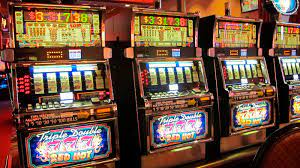CFD trading, or Contract for Difference trading, has gained popularity in recent years due to its potential to offer significant returns and its accessibility in global financial markets. However, with great opportunities often come great risks. If you are new to CFD trading or considering adding it to your investment strategy, safety is likely one of your top concerns. This article provides a data-driven overview of what makes cfd trading safe or risky and what you need to know before you get started.
What Is CFD Trading?
CFDs allow traders to speculate on the price movement of an asset—whether it goes up or down—without actually owning the underlying asset. These assets can include stocks, commodities, indices, or currencies. The trader enters into a contract with a broker to exchange the difference in the price of the asset between the opening and closing of the contract.
For example, if you predict that the price of a stock will increase, you can open a CFD position to buy. If your prediction is correct, you profit from the price difference. However, if the price moves against your prediction, you incur a loss.
Is CFD Trading Safe?
The Risks Associated with CFD Trading
Statistically, CFD trading involves a high degree of risk. Research suggests that between 70-80% of retail investor accounts lose money when trading CFDs. This is largely due to the complexity of the financial instruments and traders’ lack of experience or preparation.
Several factors contribute to these risks, such as market volatility, using margin for leveraged positions, and overtrading. Even seasoned traders can find it challenging to manage these elements effectively.
Can It Be a Safe Option?
While CFD trading can carry risks, it may also be approached safely with proper risk management strategies:
• Start Small: Starting with a small initial investment can help you get a feel for CFD trading without jeopardizing your financial stability.
• Practice Accounts: Many platforms offer demo accounts where you can trade with virtual funds to understand how CFD trading works.
• Risk Management: Learning techniques like stop-loss orders can help minimize potential losses.
• Financial Knowledge: Educate yourself about the underlying asset you’re trading and how market trends can affect its price.
Ultimately, trading CFDs is as safe as the level of preparedness and discipline you bring to it. Entering the market without a plan or proper research may lead to significant financial loss.
Things to Consider Before You Start
Understand the Market
CFD trading operates in dynamic markets such as forex and commodities, which are highly influenced by global events. It’s crucial to understand market factors, including economic data, geopolitical developments, or earnings reports, that can cause price fluctuations.
Develop a Strategy
Jumping into CFD trading without a strategy is a recipe for failure. Choose a trading method that aligns with your financial goals and risk tolerance. Some traders favor short-term positions, while others focus on long-term trends.
Choose a Credible Broker
Selecting the right brokerage platform is a key part of mitigating risks in CFD trading. Make sure to choose a platform that provides a user-friendly interface, reliable trade execution, and transparent fees.
Plan for Losses
It’s important to trade only with funds you are willing to lose. CFDs are not a get-rich-quick scheme; losses are inevitable. Having a clear plan for managing these losses will ensure that you stay grounded and reduce emotional or impulsive trading.
Final Thoughts
CFD trading offers an exciting avenue for trading a variety of assets and accessing global financial markets, but it is not without its risks. By educating yourself about how CFD trading works, employing sound risk management methods, and starting with a disciplined approach, you can reduce risks and trade more securely.
Remember, CFD trading is not inherently safe or risky—it all depends on how prepared you are and the steps you take to manage your trades. If you’re interested in starting, focus on learning the basics, understanding market movements, and practicing smart strategies. Trading wisely can make all the difference in shaping your CFD trading experience.
Is CFD Trading Safe? What to Know Before You Start
Categories:

